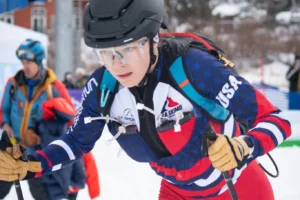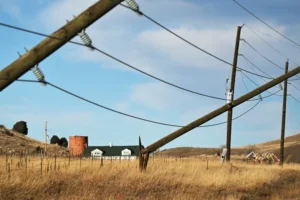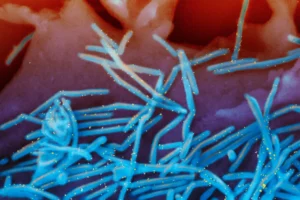WOMEN YOU SHOULD KNOW IN WYOMING: Casper Author Shares Story of Adoption to Encourage Others (Part 1)
‘God and Good Horses’ parallels Sallie Hawken’s family journey through fertility struggles and the foster care system
- Published In: Other News & Features
- Last Updated: Jun 14, 2023
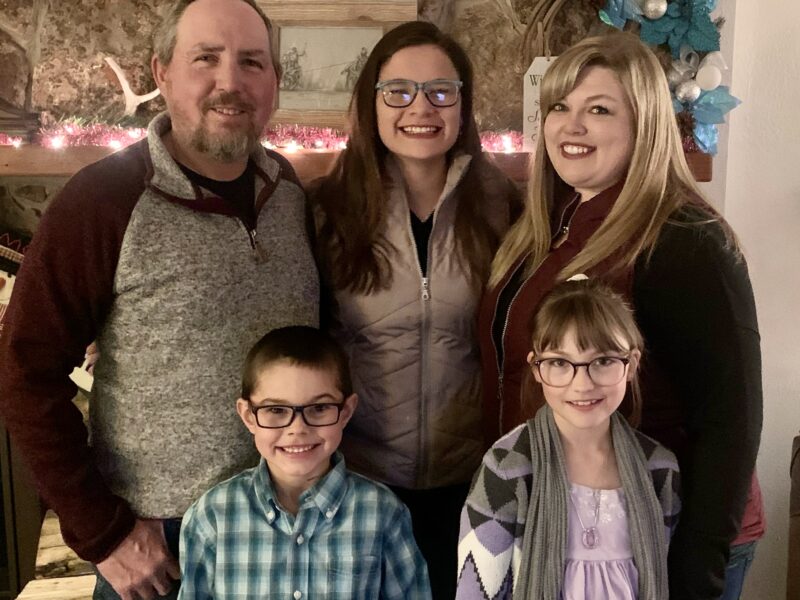
Casper author Sallie Hawken, who recently published "God and Good Horses," poses with her family. Pictured from left, front row, are children Trent and Lily; back row, husband Seth, daughter Talea and Sallie. (Courtesy photo from Sallie Hawken)
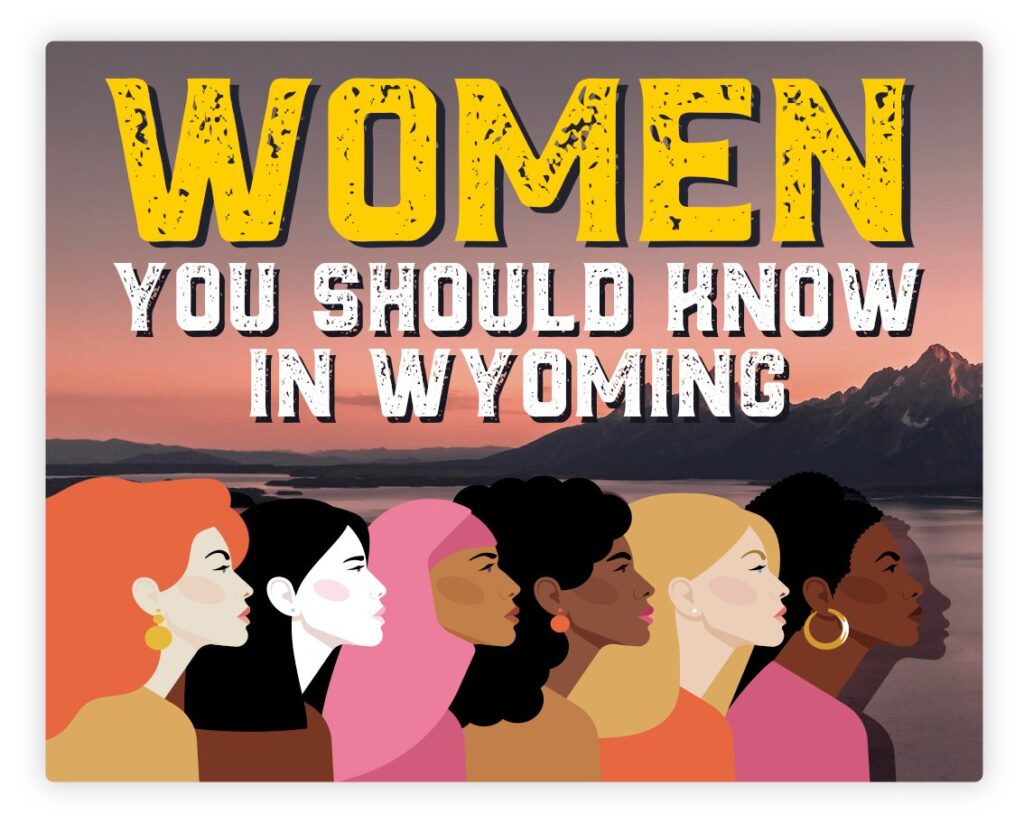
By Elizabeth Sampson
Special to the Wyoming Truth
Sallie Hawken knows what it feels like to be in over her head. She knows what it means to feel like a failure. But rather than bury those painful memories, she wrote a book to help other people who are on the same lonely and difficult journey.
Hawken’s new book, “God and Good Horses” (Christian Faith Publishing), is a fictionalized account of her struggle to get pregnant, the rollercoaster ride of adoption through foster care and the heartbreaking situations her adopted daughter Talea faced before joining their family in 2019.
“My hope for this book is that we can help some kids and get the word out there about foster care and the need for foster parents,” said Hawken, 34. “It’s not an easy road, but it is a great option for those willing to take it.”
Hawken grew up near Casper in a rodeo family. She and her brother competed in rodeos across Wyoming; their dad trained all of their horses and taught them how to do so along the way.
“Most of our time was spent horseback and in the arena, traveling to junior rodeos and then high school rodeos,” she said. “We were close. You don’t get much closer than [being] packed into a pickup traveling the state.”
Hawken’s life-long love of horses helped her through some of her most difficult times, and horses helped her daughter overcome the pain of a difficult childhood. In “God and Good Horses,” Hawken details how horses — and faith — saved both of them.
Building a family
Hawken and her husband Seth, a welder, married in 2012 and faced fertility issues when they tried to start their own family.
“It is a really hard thing, because people don’t talk about [infertility] very much,” Hawken said. “You feel like you failed; you just do. Somehow you feel like you failed at something that biology says you should be able to do.”
At the time, all of the couple’s friends seemed to be having babies, and Hawken said it was hard not to feel jealous.
“I told a few friends about our struggle, but they mostly just had comments like, ‘Try harder’ or ‘It’s really not that hard,’” Hawken said. “They meant well, but it didn’t help.”
The fertility battle strained the couple’s marriage, too.
“We tried hard not to place blame on each other, especially when we never really got any direct reason from the doctors why we were unable to get pregnant,” Hawken said. “Struggling with something that seemed like a basic part of life made it hard not to question our relationship.”
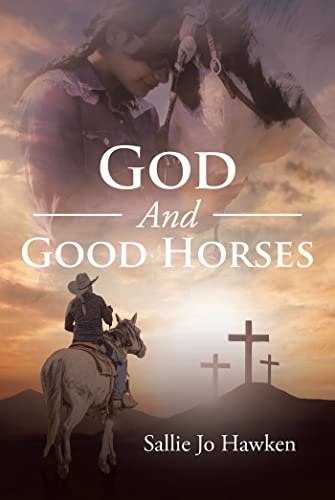
Hawken said she also felt angry with God.
“I wanted to know why He would make me want to be a mother and then not let it happen,” she said. “If I only knew that He was shaping me into the exact woman I needed to be so that when we met Talea I would be custom designed to be her mom.”
When their doctor suggested in vitro fertilization (IVF), Hawken knew in her heart it wasn’t the right path for them. She felt God was guiding them in a different direction.
In 2016, the Hawkens started to explore adoption, with the hope of adopting a baby, but soon learned it would be a long and expensive process—and not a sure thing.
That’s when fostering to adopt became part of the couple’s conversation. Seth, 40, who is Native American, found out that Native American children in need of foster care can only be placed with Native American families per the Indian Child Welfare Act. So the couple became certified foster parents and connected with a social worker who helps find homes for Indigenous children.
At first, the Hawkens hoped to provide a home for a child under age 5. The social worker asked them to consider Talea, then 9, instead.
“It seemed like again we may be getting in over our heads, but we felt that push toward her—that this was really meant to be, that this was the plan,” Hawken said. “So we just persevered until we eventually got to meet her.”
During that time, they worked to become certified foster parents in both Wyoming and Talea’s home state, which Hawken declined to name in the interest of privacy. They took a six-week course with the Wyoming Department of Family Services, participated in a home study and underwent background checks. And they also became certified in CPR and First Aid.
Next came the rigorous, highly personal interviews. “They want to know every detail about your life and a lot of things about your childhood—and rightly so, because you’re bringing a child into your home,” Hawken said.
Through their foster parenting classes, the couple learned many children in foster care have endured challenging life circumstances that can manifest in behavior issues, such as lying, taking tantrums, refusing to sleep, engaging in self-harm, biting, pinching, destroying property and harming pets. What’s more, about one in four children have Attention Deficit and Hyperactivity Disorder (ADHD), according to a national study.
“Sometimes the kids would run away, and often they would act out what had been done to them on other children in the home,” Hawken said. “They can be very manipulative and very sneaky.”
The couple wondered what they were getting themselves into. “There were a lot of times where we really questioned if we could even do this,” she said. “Are we even the right people to . . . take on a child [who may have] these challenges?”
Check back tomorrow for part 2.

